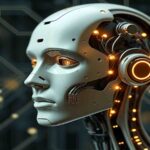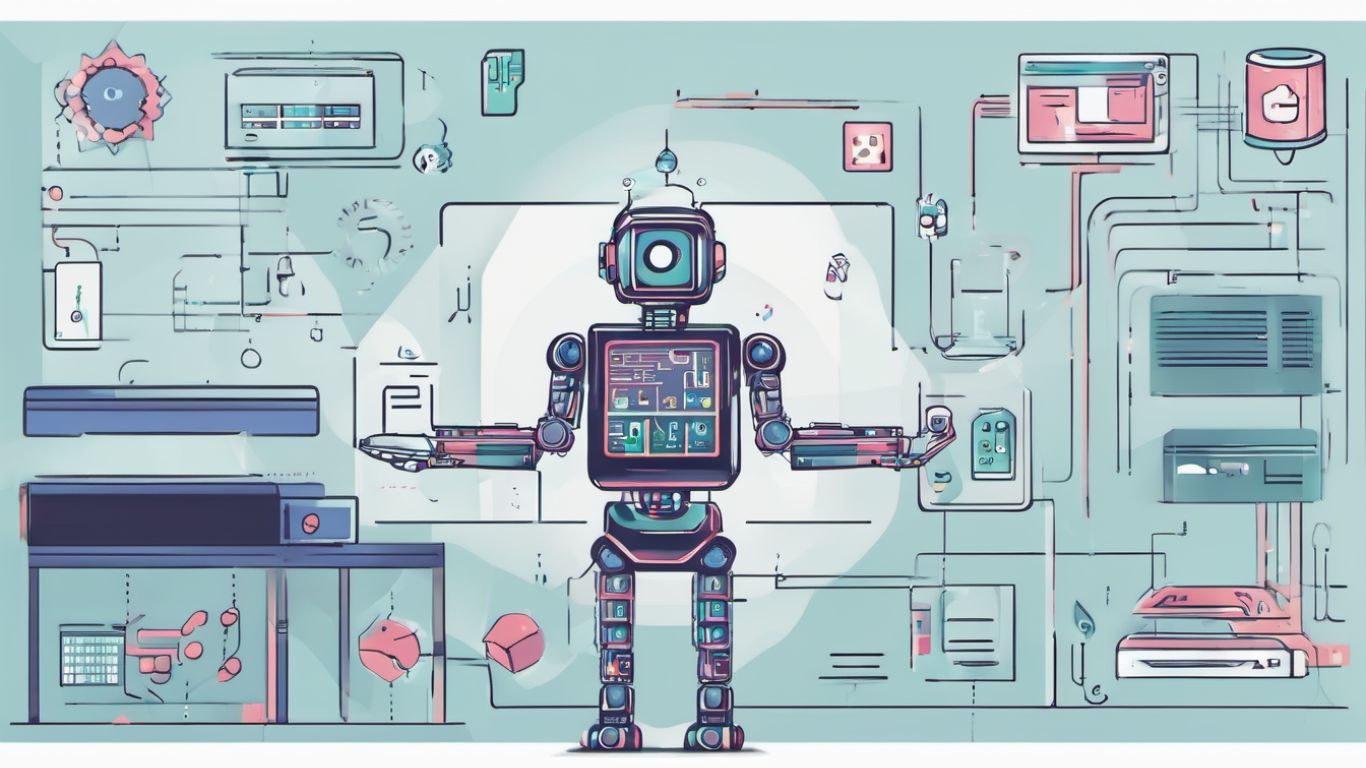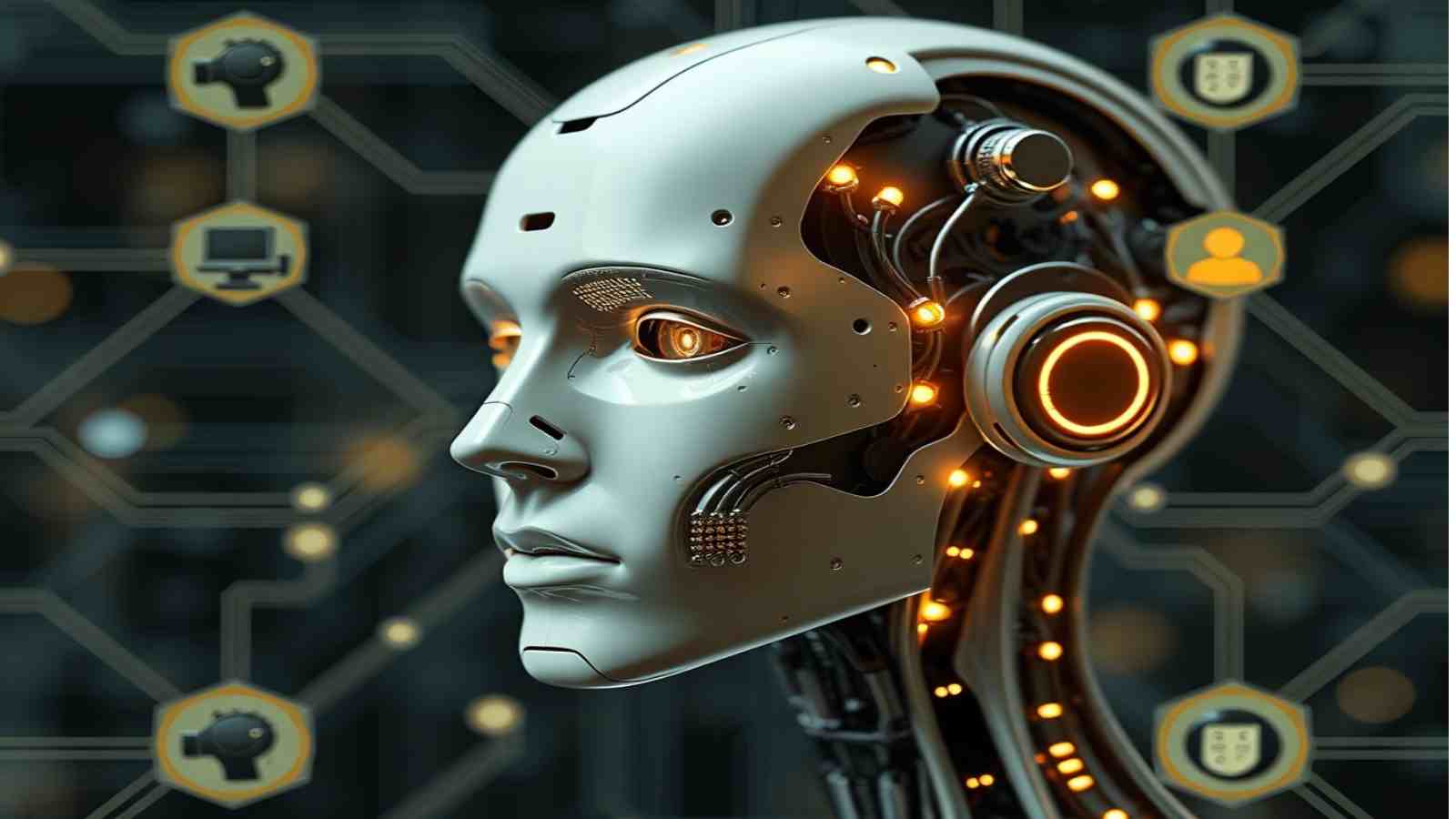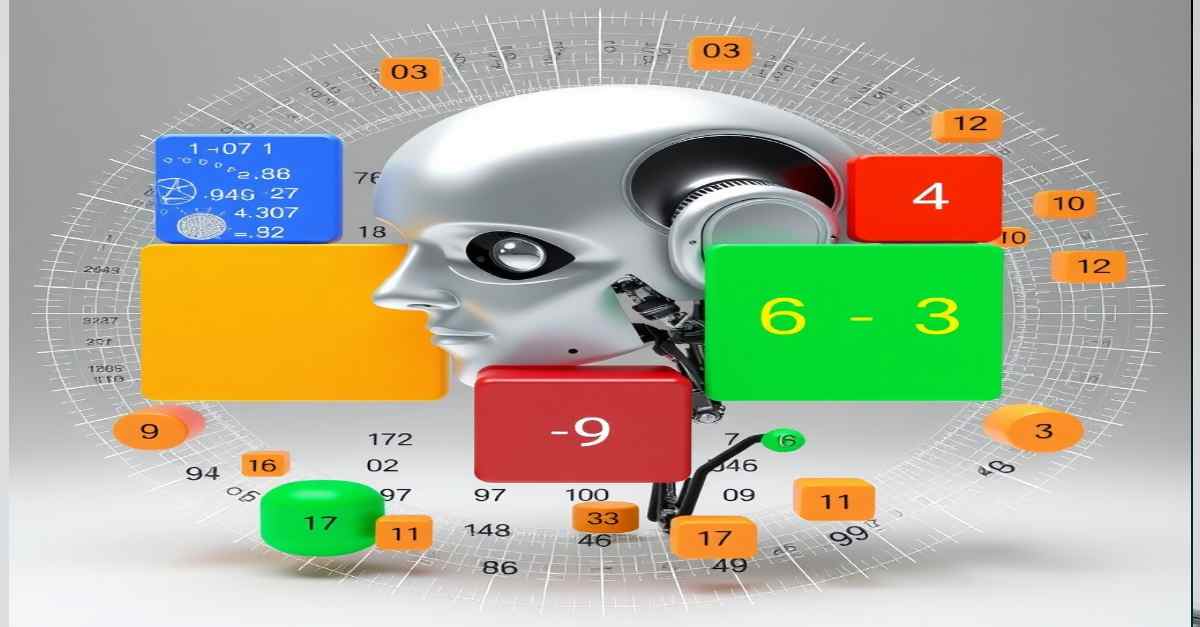Applied AI uses artificial intelligence technologies to solve practical problems or enhance specific processes within various industries. Unlike general AI, which aims to develop machines with human-like intelligence capable of solving any task, applied AI focuses on leveraging AI to improve existing systems or create new solutions that address real-world challenges. These applications often involve automating routine tasks, making data-driven decisions, and optimizing operational efficiency.
Examples of Applied AI in Use Today
Customer Service
- AI-Powered Chatbots: Chatbots are utilized across various sectors, such as e-commerce, healthcare, and banking, to automate support inquiries, offering instant responses and freeing human agents for more complex queries.
Manufacturing
- Predictive Maintenance: AI algorithms analyze equipment data to predict maintenance needs and prevent breakdowns, reducing downtime and cost savings.
Healthcare
- Personalized Treatment Plans: AI analyzes patient data to recommend tailored treatment plans, improving patient outcomes.
Impact of Applied AI on Industries
Applied AI profoundly impacts various sectors by driving efficiency, cost savings, and innovation. Here are some ways it affects industries:
Efficiency and Cost Savings
- Automation: Automates routine tasks, allowing human workers to focus on complex, strategic activities.
- Error Reduction: Streamlines processes, reducing errors and improving accuracy in inventory management and financial forecasting tasks.
Decision Making
- Data Analysis: Analyzing large data sets enables better decision-making and improves operational and strategic planning.
Customer Experience
- Personalization: Enhances customer experiences with personalized services, from recommendation engines in retail to tailored healthcare treatments.
Innovation
- New Products and Services: Facilitates innovation by creating new products, services, and business models that were previously not feasible.
Applied AI in Healthcare
IBM Watson Health
- Overview: IBM Watson Health uses AI to analyze patient data to recommend treatment plans, offer insights into patient outcomes, and suggest relevant clinical trials.
- Impact: Improves the accuracy and speed of diagnosing diseases and personalizing treatment plans, leading to better patient outcomes.
Zebra Medical Vision
- Overview: This company specializes in AI-based radiology imaging analysis, providing diagnostic insights for radiologists to detect early signs of disease.
- Impact: Enhances the accuracy of radiological diagnoses and enables early detection of potentially life-threatening conditions.
Google DeepMind’s Streams
- Overview: Utilizes AI to assist in the early detection of acute kidney injury, alerting healthcare providers to potential deterioration in patients’ conditions.
- Impact: Helps healthcare providers intervene sooner, potentially saving lives and improving patient care.
Applied AI in Retail
Amazon Go
- Overview: AI powers a checkout-free shopping experience, tracking items customers pick up and automatically charging their Amazon accounts.
- Impact: Offers a seamless, efficient shopping experience, reducing queue times and streamlining checkout.
Stitch Fix
- Overview: Uses AI algorithms to provide personalized fashion recommendations, incorporating customer feedback and stylist input.
- Impact: Enhances customer satisfaction by delivering more accurate and personalized fashion choices.
L’Oreal’s AI Makeup Advisor
- Overview: Provides personalized makeup recommendations based on facial analysis, allowing customers to try on products before purchasing virtually.
- Impact: Increases customer engagement and satisfaction by offering a tailored and interactive shopping experience.
Frequently Asked Questions (FAQs)
Q: What is the primary goal of applied AI?
A: The primary goal of applied AI is to leverage artificial intelligence technologies to solve specific, practical problems or enhance processes within various industries. This involves automating routine tasks, making data-driven decisions, and optimizing operational efficiency.
Q: How does applied AI differ from general AI?
A: Applied AI addresses concrete, real-world challenges by improving existing systems and creating new solutions. In contrast, general AI aims to develop machines with human-like intelligence capable of performing any intellectual task that a human can do.
Q: What are some common examples of applied AI?
A: Common examples of applied AI include AI-powered chatbots in customer service, predictive maintenance systems in manufacturing, and personalized treatment plans in healthcare.
Q: How does applied AI impact job roles in various industries?
A: Applied AI automates routine tasks, allowing human workers to concentrate on more complex, strategic activities. While it can streamline processes and reduce errors, it also necessitates adapting job roles to complement AI technologies.
Q: Is applied AI accessible to small businesses?
A: Applied AI is becoming increasingly accessible due to cloud-based AI services and affordable AI tools. Small businesses can use these technologies to enhance operations, improve decision-making, and provide personalized customer experiences.
Q: What are the potential ethical concerns with applied AI?
A: Potential ethical concerns include data privacy issues, bias in AI algorithms, and the impact on employment. Organizations must address these concerns through transparent practices, inclusive training data, and ethical AI guidelines.
Q: Can applied AI be integrated with existing systems?
A: Applied AI can often be integrated with existing systems through APIs and other integration tools, enabling organizations to enhance their current processes without a complete overhaul.
Q: How does applied AI contribute to innovation?
A: Applied AI fosters innovation by enabling the creation of new products, services, and business models that were previously not feasible. It also provides insights and capabilities that drive continuous improvement and development.
Conclusion
Applied AI revolutionizes various industries by driving efficiency, enhancing decision-making, and fostering innovation. Whether in healthcare or retail, AI is creating new opportunities for businesses to operate more effectively and offer more personalized experiences to their customers. As AI technology evolves, its applications will only grow, further transforming how industries function.
For those starting to explore AI’s potential, consider signing up for Jasper for free. Jasper offers a range of AI-powered tools to help your business leverage artificial intelligence to stay ahead in an ever-competitive landscape.











